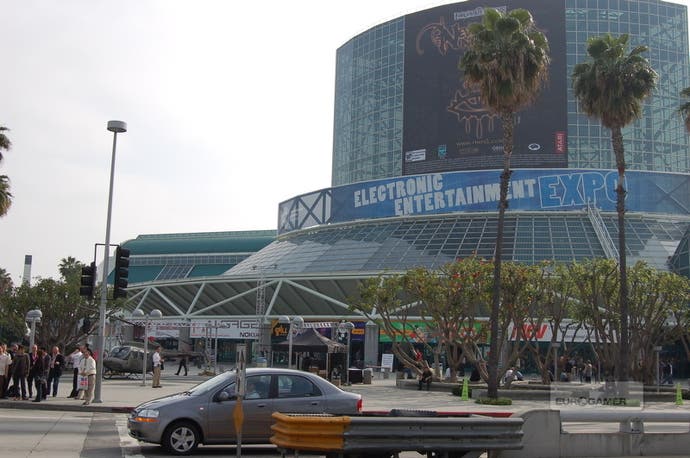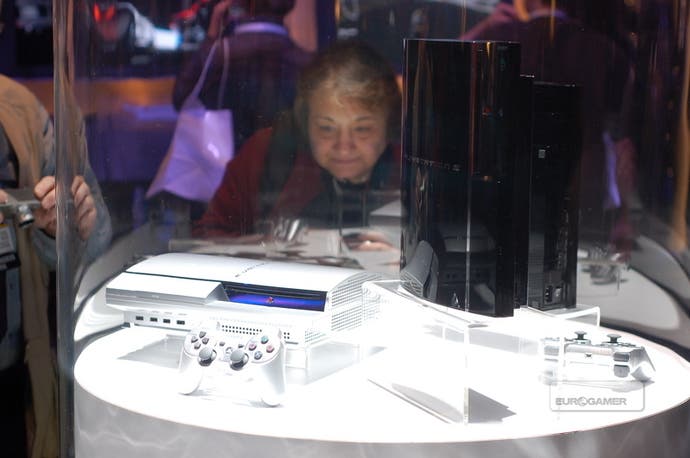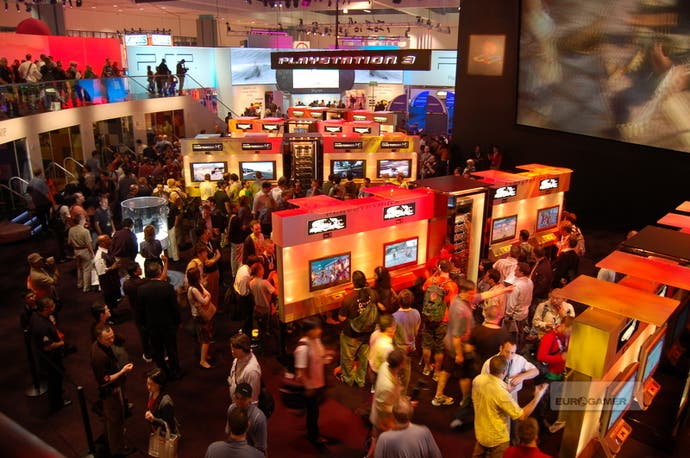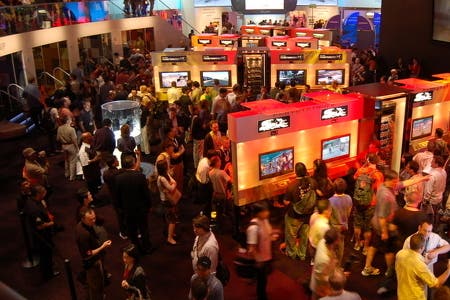Saturday Soapbox: Eurogamer's Love Letter to E3
Relevant? It's the heart of core gaming.
It's been a strange year to be European. Never mind that we have less money in our pockets to spend on things; some of us can't even predict which monetary unit we'll actually have in our pocket in 12 months' time. Gaming, so often our refuge from real life, hasn't escaped either - earlier this year harsh reality intruded on our secret world of space RPGs and Shenmue 3 petitions to announce that our most obvious representation on the high street, the GAME Group, was probably doomed, and that the repercussions could mean fewer games or at least fewer risk-taking games made for the likes of us in the long term. (Fortunately it didn't pan out like that, but we still don't know what the future holds.)

So next week's Electronic Entertainment Expo in Los Angeles is a welcome port in a storm of annoying things we've never previously had to worry about. It's an opportunity to forget about the challenges currently facing society (like a double-dip recession, widespread corruption in media and government, and Error 37) and look forward with wide eyes to a twinkling future of triple-A juggernauts that look better and do more than anything we have today. We even get to salivate over a new console, even if it is the Wii U. (Only joking, Nintendo - my saliva is just as free-flowing for you as it is for anyone else. Come see.)
E3 is also interesting for other reasons this year, including some that might not be so obvious. For example, this year's show perhaps more than any in recent memory highlights the growing divide between the games industry in its broadest sense and the sub-section of it that fuels the websites, blogs and forums that you and I spend all our days rumbling around. It's led some in the trade press to question whether the show is as relevant as it used to be (although naturally the show's frothing organisers vigorously assert that it is).
The source of these debates is research from people like Digi-Capital, which shows that investment in the games industry has fundamentally shifted to online and mobile, which will soon account for over half the total size of the video games market (if it doesn't already) while the traditional console sector is stagnating, despite its current large size. Recent notable acquisitions include EA's buyouts of Popcap and Playfish, Disney's cheque for Playdom, and companies like DeNa, Tencent and Shanda, who have paid huge amounts to get in on the bits of the games industry showing amazing growth.

We don't talk about this stuff much on Eurogamer because, frankly, you and we don't play many of the games that result from those deals, and our editorial policy is to cover things we find interesting and/or enjoyable. We write about the gaming that matters to us, innit. But it's hugely relevant if you're part of the games trade, and E3 is a games trade show. A few larger mobile/social/online companies are at E3 this year (including GREE and Zynga), but it's still hard to escape the feeling that E3 doesn't serve the majority of trade attendees in the way that it used to serve them.
But while E3 is a trade show, we all know that people like EA, Microsoft, Sony and Nintendo don't spend millions of dollars building their stands and hosting press conferences so that animators and sound technicians working on the latest Hannah Montana game can wander past and drink it in; they do it so that the noise reverberates around the world, and people like you sit up and take notice of games like Dead Space 3, Halo 4, or whichever other game sequel that came out 2-3 years ago is ready for a larger number on the end.
Some people bemoan the fact that most of E3 is already over by the time the actual show doors open, thanks to pre-show events, conferences, online reveals and trailers, but to do that is missing the point: you may not be there, and half the content may be out in the open by the time anyone at all gets into the building, but we're in E3 mode. Our senses are heightened, our calendars are cleared; we have made loads of room in our heads for the latest best-thing-ever. It's the Christmas in June, and since publishers increasingly like to flip the switch on a few interactive surprises (like shock Xbox Live Arcade launches, PlayStation Network freebies and Nintendo retro downloads), there may even be actual presents.

Later we'll rake it all over and decide what we really liked and which headlines we probably should have known better about, and we'll watch YouTube mashups of everybody's favourite conference gaffes (my money's on Phil Harrison riding onto the Microsoft stage on a giant enemy crab that's visibly rumbling), but that's part of the fun too. It's the unique atmosphere that's formed in and around those sweltering halls at the LA Convention Center and the way that it permeates bedrooms and offices all around the world where we discuss it all incessantly, even though none of it really matters.
Other mediums have their own events that throw up exciting news and new projects, like Cannes for film and the summer festival circuit for music, and while there are other gaming shows around the world that radiate excitement and exclusive revelations (like PAX, Gamescom, and of course our own Eurogamer Expo), for core gamers there is and always has been E3. It holds a unique place in our hearts. Relevant? It may not be accurate to say it's the most encompassing trade event in the world these days (GDC seems to be heading in that direction, although please bring back the keynotes), but E3 is still where it's at for core gaming; a ridiculous mountain of money and fireworks that ties the whole year together. Enjoy it while it lasts - of course it's already started.

